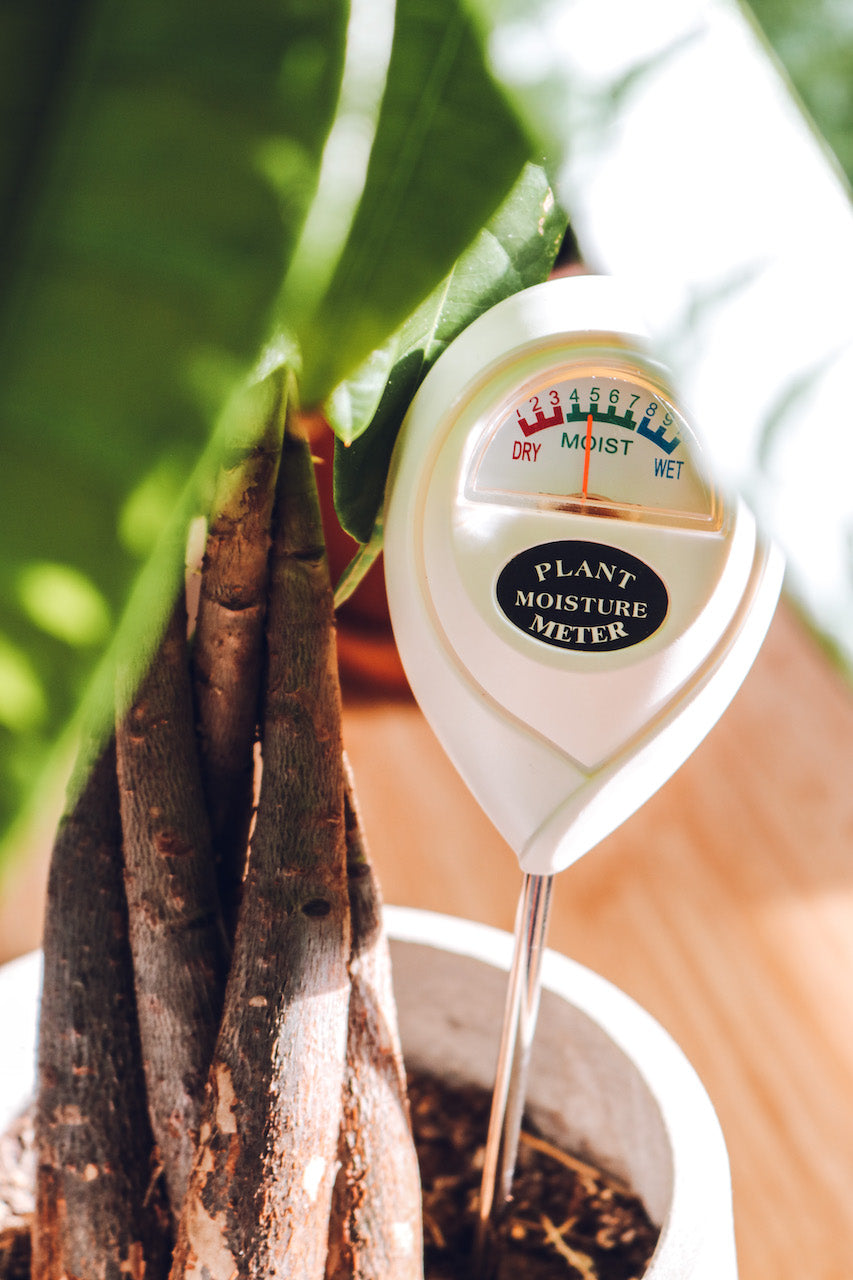Just How a Moisture Meter Can Boost Your Construction Projects and Stop Damages
Wiki Article
The Ultimate Overview to Moisture Meters: A Comprehensive Summary and Exactly How They Can Conserve You Money
Wetness meters serve as essential tools in identifying and keeping track of moisture material in materials, aiding in stopping pricey problems and ensuring the top quality of products. Comprehending the subtleties of different kinds of moisture meters, their applications, and the potential cost-saving advantages they offer can be a game-changer for businesses and specialists alike.Sorts Of Moisture Meters
Different sorts of moisture meters are available for various applications in various industries. One typical kind is the pin-type wetness meter, which measures the electrical resistance between two pins inserted into a product. This type appropriates for timber, drywall, and other structure materials. Pinless moisture meters, on the other hand, usage electro-magnetic sensor plates to check a larger area without causing damage to the product's surface area. Moisture Meter. These meters are excellent for promptly examining wetness levels in big locations such as walls and floorings.
Infrared moisture meters determine the thermal residential properties of a product to identify its dampness material non-invasively, making them beneficial for applications where pin or pinless meters might not be appropriate. Comprehending the various kinds of moisture meters offered can aid industries select the most appropriate tool for their certain moisture measurement requirements.

Benefits of Making Use Of Wetness Meters
Wetness meters use invaluable advantages in properly analyzing and keeping track of moisture levels in varied products and environments. One of the primary benefits of making use of dampness meters is the avoidance of possible damages triggered by excess wetness.
In addition, making use of dampness meters can bring about raised energy performance. By identifying locations with high dampness levels, such as leaks or bad insulation, modifications can be made to boost energy preservation and minimize utility prices. In agricultural settings, dampness meters play a critical function in optimizing plant yields by enabling farmers to keep an eye on soil dampness levels and make informed watering decisions. Generally, the benefits of making use of wetness meters extend across various markets, providing cost-efficient options and promoting much better quality control techniques.
Exactly How to Pick the Right Dampness Meter
Picking the proper moisture meter entails thinking about essential elements such as material compatibility, dimension array, and calibration precision. When choosing a wetness meter, it's vital to guarantee that the meter is suitable for the details material you will certainly be testing. Various products have varying electric buildings that can impact dampness readings, so selecting a meter developed for your product is important for exact results. view publisher site In addition, consider the measurement series of the dampness meter. Ensure that the meter can spot dampness degrees within the array needed for your applications. Calibration accuracy is another important element to bear in mind. Go with a dampness meter with reliable calibration to make sure specific and constant analyses. Some meters may need regular calibration modifications, so comprehending the calibration process is essential. By very carefully examining these aspects, you can select a moisture meter that meets your demands and gives exact dampness dimensions for your tasks.Proper Strategies for Wetness Meter Use

Price Financial Savings Via Dampness Meter Applications
Just how can the critical use of moisture meters lead to significant cost financial savings across numerous markets? In the agriculture sector, wetness meters aid in figuring out the optimum time for gathering crops, stopping over-drying or excess moisture that can affect the final item's high quality.
Likewise, in building, dampness meters assist prevent pricey problems by finding dampness levels in structure materials, such as timber or concrete, which can lead to architectural issues if not resolved quickly. By recognizing problem locations early on, specialists can take corrective steps to stay clear of substantial repairs or substitutes, ultimately saving time and cash.
Furthermore, in the food processing market, dampness meters are important for keeping an eye on item quality and guaranteeing compliance with security policies. By properly determining wetness web content in food items, manufacturers can avoid wasting, discover this keep quality, and lower waste, resulting in significant cost savings. In general, the calculated application of dampness meters is a beneficial investment that can result in considerable expense reductions and enhanced effectiveness across different markets.
Final Thought
To conclude, wetness meters are useful devices for determining and identifying dampness degrees in different materials. By utilizing the best dampness meter and complying with proper techniques, customers can efficiently stop expensive damages brought on by excess moisture. Buying a high quality dampness meter can bring about considerable find out here now expense savings in the long run by recognizing prospective issues early on and making it possible for punctual remediation. Inevitably, wetness meters are necessary instruments for maintaining the honesty and durability of structures and products.Moisture meters serve as important tools in finding and keeping an eye on moisture content in products, assisting in avoiding pricey damages and making sure the quality of products. Infrared dampness meters determine the thermal homes of a product to determine its moisture material non-invasively, making them valuable for applications where pin or pinless meters may not be appropriate.Dampness meters offer vital benefits in accurately examining and monitoring dampness levels in diverse materials and settings. In farming settings, moisture meters play a critical function in enhancing plant yields by making it possible for farmers to keep an eye on dirt wetness levels and make educated watering decisions.In final thought, moisture meters are beneficial tools for gauging and spotting dampness degrees in various materials.
Report this wiki page